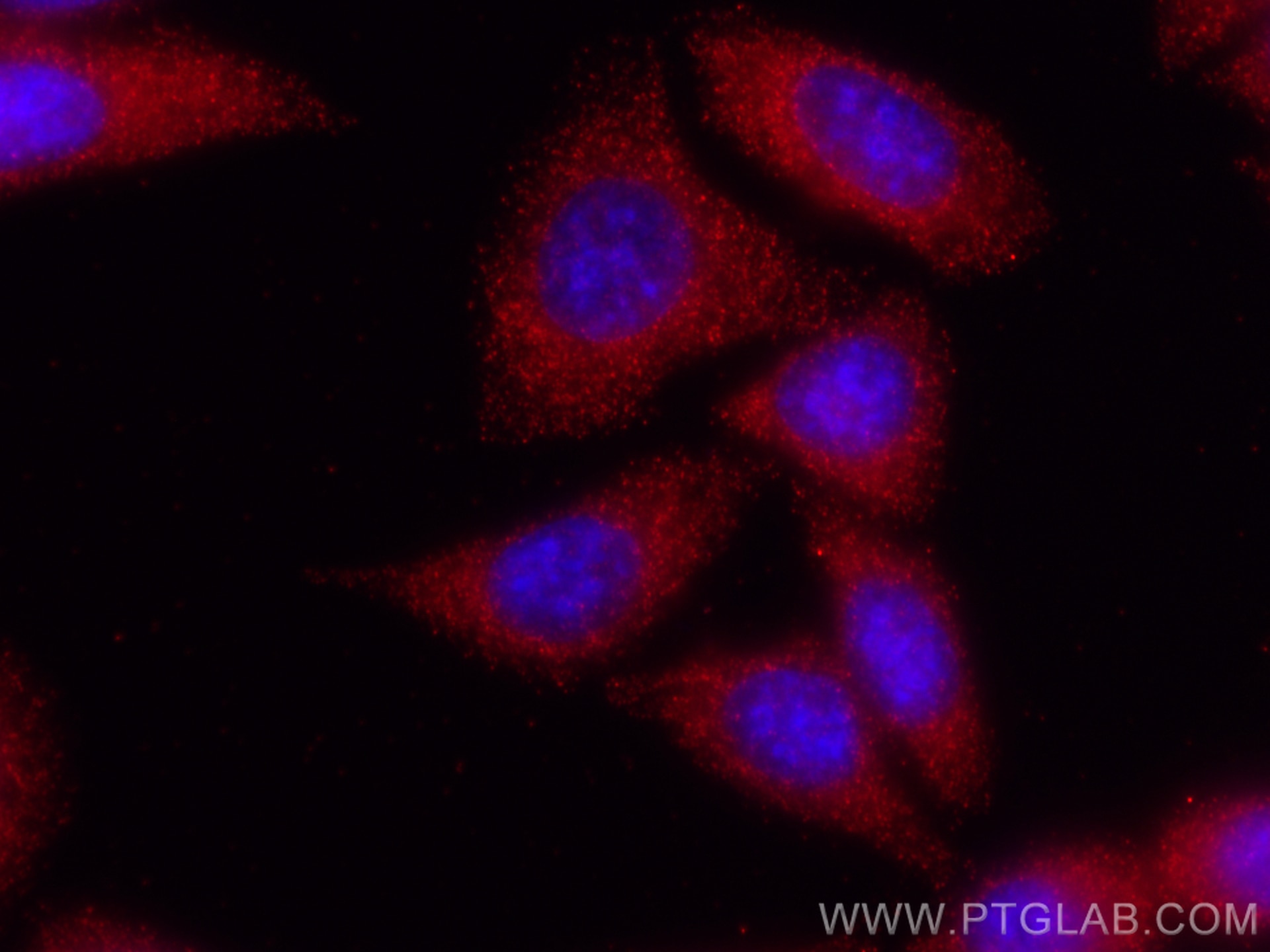CoraLite®594-conjugated PGD Monoclonal antibody
PGD Monoclonal Antibody for IF
Host / Isotype
Mouse / IgG1
Reactivity
Human
Applications
IF
Conjugate
CoraLite®594 Fluorescent Dye
CloneNo.
2A10G4
Cat no : CL594-67916
Synonyms
Validation Data Gallery
Tested Applications
| Positive IF detected in | HepG2 cells |
Recommended dilution
| Application | Dilution |
|---|---|
| Immunofluorescence (IF) | IF : 1:50-1:500 |
| It is recommended that this reagent should be titrated in each testing system to obtain optimal results. | |
| Sample-dependent, Check data in validation data gallery. | |
Product Information
CL594-67916 targets PGD in IF applications and shows reactivity with Human samples.
| Tested Reactivity | Human |
| Host / Isotype | Mouse / IgG1 |
| Class | Monoclonal |
| Type | Antibody |
| Immunogen | PGD fusion protein Ag6871 |
| Full Name | phosphogluconate dehydrogenase |
| Calculated Molecular Weight | 53 kDa |
| Observed Molecular Weight | 53 kDa, 45 kDa |
| GenBank Accession Number | BC000368 |
| Gene Symbol | PGD |
| Gene ID (NCBI) | 5226 |
| Conjugate | CoraLite®594 Fluorescent Dye |
| Excitation/Emission Maxima Wavelengths | 588 nm / 604 nm |
| Form | Liquid |
| Purification Method | Protein G purification |
| Storage Buffer | PBS with 50% Glycerol, 0.05% Proclin300, 0.5% BSA, pH 7.3. |
| Storage Conditions | Store at -20°C. Avoid exposure to light. Aliquoting is unnecessary for -20oC storage. 20ul sizes contain 0.1% BSA. |
Background Information
PGD, also named as PGDH, belongs to the 6-phosphogluconate dehydrogenase family. PGD catalyses the oxidative decarboxylation of 6-phosphogluconate to ribulose 5-phosphate in the context of the oxidative part of the pentose phosphate pathway. PGD is important for the production of NADPH, which is necessary for reductive biosynthesis, such as the formation of lipids and nucleotides, and the activity of enzymes involved in maintaining cell integrity, in combatting oxidative stress and in the first line of immunological defence. (PMID: 35234135)
Protocols
| Product Specific Protocols | |
|---|---|
| IF protocol for CL594 PGD antibody CL594-67916 | Download protocol |
| Standard Protocols | |
|---|---|
| Click here to view our Standard Protocols |


